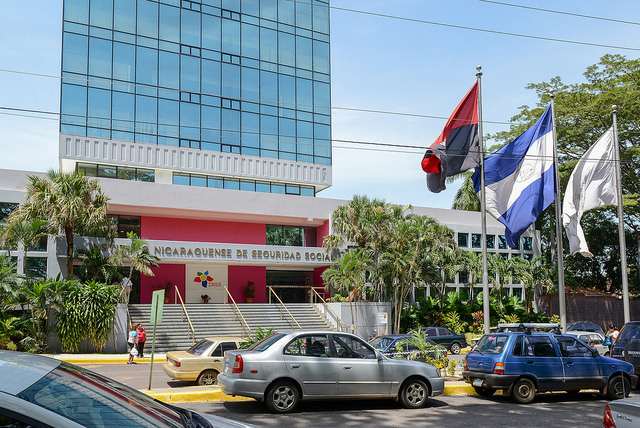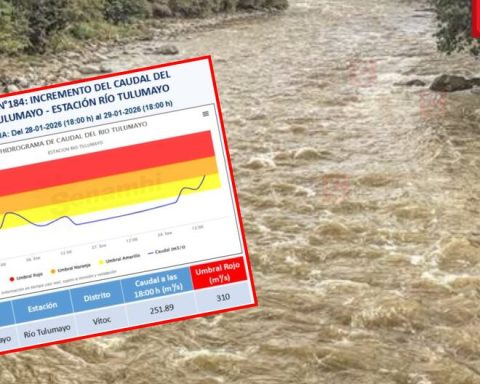The millionaire transfers of resources that the Government of Daniel Ortega has made to the Nicaraguan Social Security Institute (INSS) —amounting to 410 million dollars between 2018 and 2021— are insufficient to solve the problem of the finances of that entity, while generate “more jobs of better quality” in Nicaragua, value experts consulted by CONFIDENTIAL.
Three statistics endorse the accuracy of that sentence. The first is that, between 2018 and 2021, the INSS reported an accumulated deficit of 13,951.2 million córdobas, despite having received, in that same period, transfers for 14,146.6 million córdobas (410 million dollars), sometimes, financed with external cooperation resources.
The second is that, with the three installments transferred to the INSS in the first quarter of this year, the Government has already completed 49 of the 50 installments of the historical debt, which means that it will have to find another mechanism to continue launching a financial lifeline to the entity, knowing that “letting it fall” is not a real option, neither from the economic, political or social point of view.
The third statistic is that the 757,548 affiliates reported by the INSS in 2021, (data that is equivalent to formal employment), “is not even close to the 2016 figure, which was 857,219 formal jobs, that is, there is a lag of at least five years”, says Professor Marco Aurelio Peña.
The figure for 2021 is even lower than the 773,400 active affiliates reported in 2015, with which the lag would be even greater. The projection of 806,700 affiliates with which this statistic could close 2022, according to an economist who asked to keep his name confidential, is a palliative that does not serve to give a significant break to the financial situation of the Institute.
In any case, any of these numbers is close to half of the total number of affiliates that the INSS needs to manage its finances in the black, but always on the brink of the abyss. “The INSS should have 1.5 million active insured, and with that number, it is still would be close to falling into deficit”, says an expert on Nicaraguan Social Security issues, who also asked to omit his name.
Insuring them all solves nothing
In reference to the 410 million dollars transferred to the INSS by order of the Executive, from 2018 to 2021 (which rises to 490 million from 2014 until the first quarter of 2022), the expert on Social Security issues asserts that “the Government can pay everything that is owed (there is only a fee of ten million dollars left), but the Insurance falls into a deficit the next day, because its income is insufficient to meet the demand” of its affiliates, pensioners and retirees.
The reason has been repeated ad nauseam, and it is that “as long as the Nicaraguan economy does not generate enough jobs with higher productivity, this problem will continue”, reiterates the expert.
He mentions that it could be thought that attracting thousands more jobs, in the free zone sector, could be the beginning of the solution. He goes further, and points out that insuring all the field staff, all the domestics, those who serve in grocery stores, those who drive caponeras, market vendors, taxi drivers… none of that would help much.
The reason is that, even if they were all enrolled at this very moment, their Social Security income would begin to increase the deficit almost immediately, because the contribution of these workers does not even cover the cost of their medical care. “Affiliating them would help at the beginning, but when they begin to demand services, what they have earned is lost, because they are very low contributions, originating from very low wages,” he explains.
His thesis is that “there is no solution, as long as the socioeconomic and political situation remain the same. To create so many jobs, a lot of national and foreign investment is required, but as long as the country does not generate enough confidence, that investment will not happen. NGO closures make things worsebecause it increases distrust, in addition to throwing more people into unemployment”, he stresses.
The greater the migration, the less contributors
The economist explains that the Government is determined to reduce the financial gap of the INSS cutting benefits, increasing income, and making financial adjustments, because “the country’s economic prospects are uncertain, and it will be more difficult for it to locate and obtain external resources in the coming periods.”
“The underlying problem is that the population that contributes to the Insurance does not grow because there is no growth in formal employment, but there is in informal employment, which does not generate income for the State. The migration it also weakens the INSS, because it means fewer contributors. The underlying problem is that the structural situation of the INSS has become complicated, and I do not believe that this gap can be resolved in the medium term”, he assures.
This economist believes that so that the INSS manages to stop and reverse its situationmust increase the number of its contributors by 200,000 per year, over five years, but “in 2021 there were only 85,000 new contributors, and in 2022, the contribution may be 94,000.”
Little investment, little employment
Professor Peña complements that “INSS will continue to depend on the transfers made by the Central Government”, and predicts that “if things continue the same, private investment —national and foreign— will continue to behave modestly; that remittances are greater than 1 billion foreign investment is unusual”, because it means that people are leaving the country en masse.
“A slow growth of foreign investment translates into a slow recovery of formal employment, which generates less income for the INSS. Let’s not forget that optional insurance is also punished. With the erosion of purchasing power, the stagnation of nominal wages and the decline of the average nominal wage, workers are not going to allocate an important part of their salaries to pay for the doctor, ”he warns.
The need for the INSSthat the Government continues to transfer resources to it, implies greater government indebtedness, or a reduction in the budget of other institutions, to at least cover financial liabilities, such as economic benefits, medical attention and medicines.
Given that Social Security has a smaller number of active insured contributors, while the number of retirees and pensioners remains constant, “they only have to reduce the quality of medical care and medication benefits,” Peña details.
















